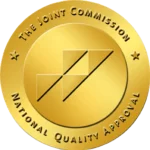Components of CBT for Substance Abuse
CBT focuses on two key ways of treating substance abuse, Functional Analysis, and Skills Training.
Functional Analysis in Cognitive Behavioral Therapy for Addiction
Functional Analysis looks at the origins of choices we make and looks at whether the outcomes we got as a result of that choice are something we want or don’t want. When we see unwanted outcomes and unintended consequences in our lives, we will naturally be motivated to try different behaviors to see if we can get better results.
In Functional Analysis, the therapist and clients work together to practically assess what’s working and what isn’t, and see if there might be better paths to a desired outcome.
A woman seeking recovery from addiction has to go through a recognition process of discovering how external results are being set in motion by her unconscious thoughts, feelings, and choices.
For example, a woman who on a whim takes a drink at a family gathering after a hard-earned period of sobriety, thereby beginning a relapse, may have just wanted to feel relaxed and like she belonged, to numb the feelings of low self-esteem, loneliness, or shame she was feeling. The outcome, a relapse, eventually reinforces her feelings of unworthiness and creates the opposite effect of what she needed.
In particular in with CBT for substance abuse, emphasis is placed on the fact that substances do not create positive outcomes, even though it seems in the moment like maybe they will. The chain of association whereby a substance has seemed like a friend has to be broken, such that one sees that substances have, on the whole, quite destructive impacts.
Functional Analysis is very useful in relapse prevention planning, in which one needs to critically examine one’s addiction-related thoughts, feelings, circumstances, and behavioral patterns to make a rigorous plan for being different.
Skills Training in Cognitive Behavioral Therapy for Addiction
Cognitive behavioral therapy is essentially a very practical, results-oriented methodology, which defines its success or failure based on whether or not behavioral goals are reached. If a change in thought and behavior works, we keep it, and if it doesn’t work, we keep searching for a better one until things work better.
Healthy thinking, the kind that creates positive outcomes in the reality we live in, is a skill that can be learned. Once we have better thinking skills, we get the benefit of behavioral changes and better life outcomes.
It is very empowering for women to learn that helpful thoughts and positive behaviors are skills that pretty much anyone can learn.
While CBT is not a silver bullet, it is a very valuable discovery to see how much influence we have over our sphere and subjective experiences, just through the practice of remembering we have a choice in which thoughts we choose to endorse.
Some of the most important CBT skills trained include:
- The ability to notice one’s own more subtle or semiconscious thoughts playing in the background
- The ability to assess the quality of those thoughts (does this thought help me or not)
- The ability to source the origin of inherited or collective-culture-based thoughts (this is what most people think, but what do I think?)
- The ability to spot cognitive distortions or thoughts that create unhappiness. For instance, catastrophizing (expecting the worst), judgment and shoulds, taking things personally, or the fallacy of control
- The ability to gently acknowledge (not suppress) negative thinking for what it is



 We at Villa Kali Ma are fans of cognitive behavioral therapy because it effectively coaches an empowering set of tools and skills that, once learned, can be used for the rest of one’s life.
We at Villa Kali Ma are fans of cognitive behavioral therapy because it effectively coaches an empowering set of tools and skills that, once learned, can be used for the rest of one’s life.




